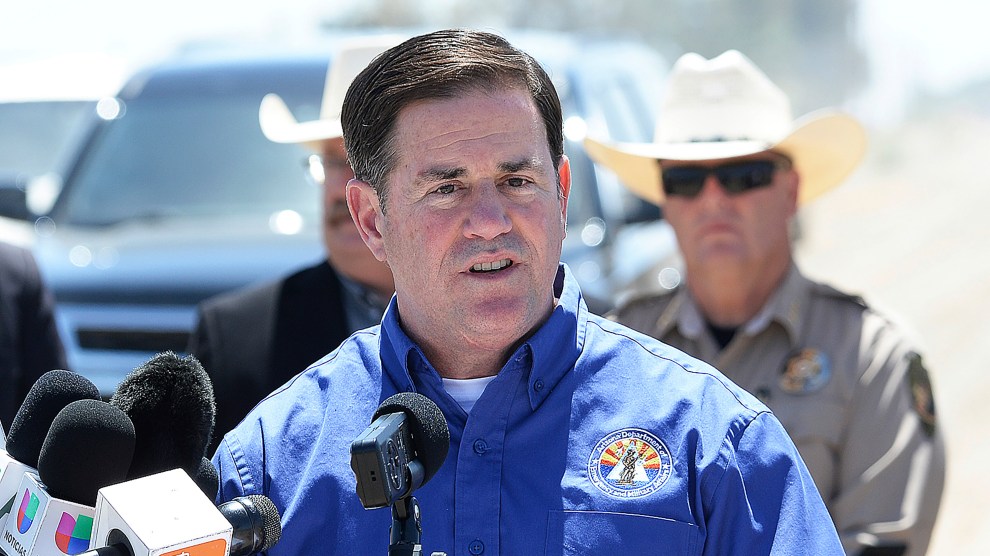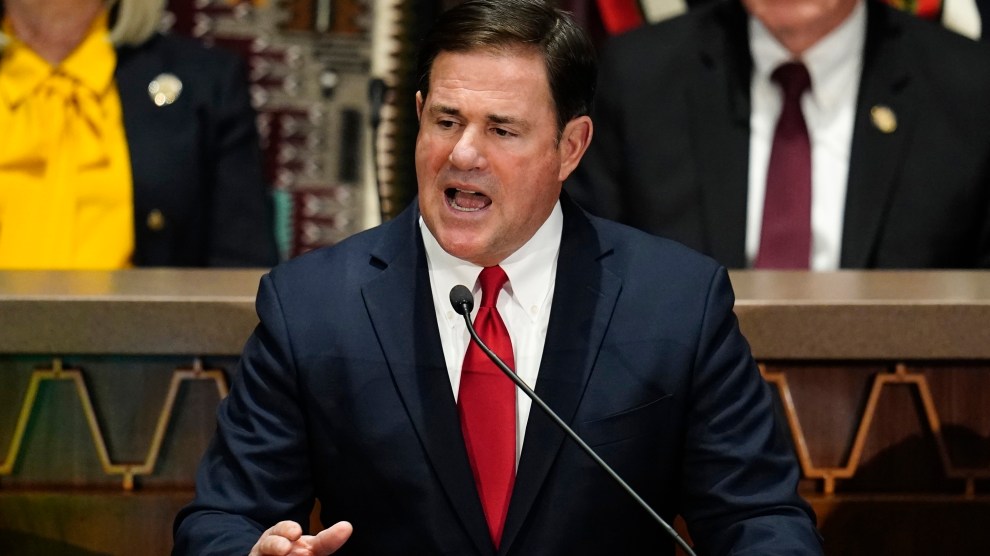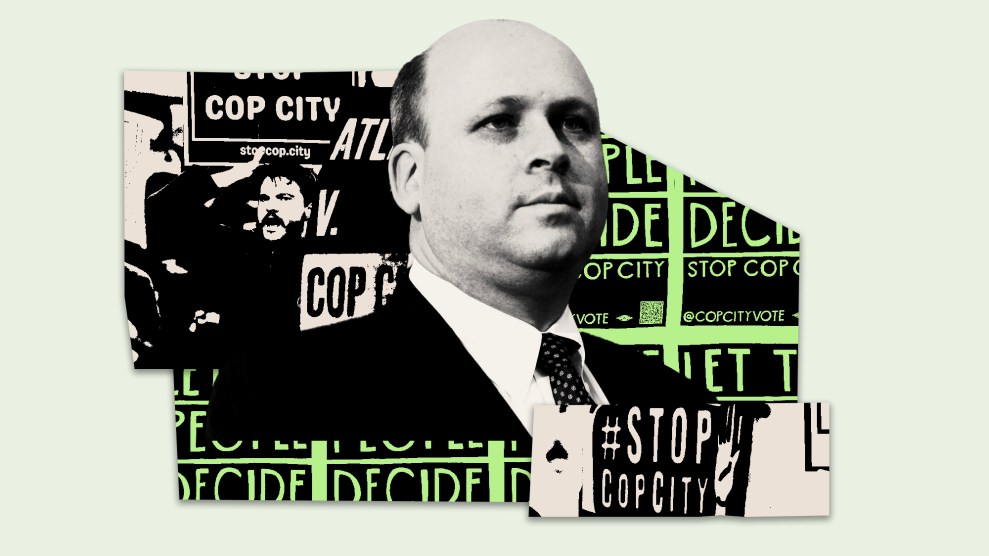
Arizona Gov. Doug Ducey (R) in 2021Randy Hoeft/The Yuma Sun/AP
A new Arizona law will make it illegal for people to film police activity from less than eight feet away in most circumstances, raising questions about the limits of the First Amendment and the public’s role in police accountability.
The law, signed by Republican Gov. Doug Ducey on Wednesday and set to take effect in September, states that “it is unlawful for a person to knowingly make a video recording of law enforcement activity if the person making the video recording is within eight feet of where the person knows or reasonably should know that law enforcement activity is occurring” and if the person continues recording despite a verbal warning from police.
The law includes exceptions for “a person who is the subject of police contact,” occupants of a vehicle stopped by police, and people who are filming in an enclosed structure on private property—but not for journalists.
Bystander videos of law enforcement activity have prompted cries for police reform across the country, and, as in the case of George Floyd, have been instrumental in securing justice following police violence. The bill’s sponsor said in an op-ed that the legislation aims to prevent people from interfering with law enforcement, but critics argue that it will lead to decreased visibility of police misconduct and that it infringes on First Amendment rights.
In a letter signed by more than 20 media organizations, the National Press Photographers Association argues that the law violates the “‘clearly established right’ to photograph and record police officers performing their official duties in a public place.” Alan Chen, a law professor at the University of Denver, told the New York Times that he believed the Supreme Court would hear a case about the right to record police in the near future. Here’s hoping they love the First Amendment just as much as they love the Second.














